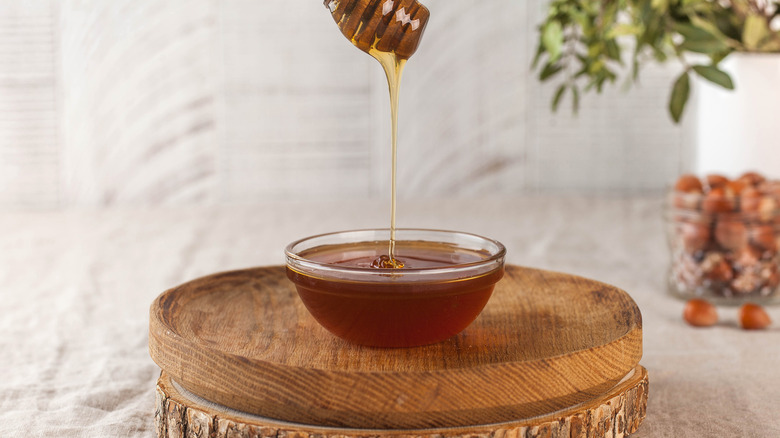Is Raw Honey Good For You?
Honey bees are the wonderful little creatures responsible for making the honey we eat. The nectar they collect from flowering plants goes through a process before it ends up on your table. Bees regurgitate the honey when they arrive at the hive (via Livescience). Eventually, it ends up in the honeycomb, where they fan it with their wings to accelerate water evaporation. After most of the water is gone, the bees seal the honey in the honeycomb, which hardens into beeswax. One of the best things about beeswax is that it can be stored indefinitely.
Honey is used primarily as a sweetener, and there are about 320 varieties to choose from, according to Mayo Clinic. However, it also contains many beneficial compounds for your health, per Healthline. Unfortunately, pasteurization can kill many of these compounds in the process. Thus, raw honey may be more beneficial to your health than pasteurized honey.
The health benefits of raw honey
While sugar is the main component of raw honey, it also contains compounds that make it much more than something to sweeten your tea. For example, it contains antioxidants, which can protect against cell damage from free radicals and certain chronic conditions like heart disease and cancer. Additionally, raw honey naturally contains hydrogen peroxide, which can kill fungus and bacteria that lead to infections. It can also be beneficial for alleviating a sore throat and soothing a cough (via Healthline).
While there are many reasons to add raw honey to your diet, it has the potential to lead to botulism poisoning (via Healthline). For this reason, babies under one year of age should not eat raw honey. Infant botulism poisoning can cause dangerous effects like slowed breathing, paralysis, constipation, and the inability to control their head. Adult botulism poisoning can cause diarrhea, vomiting, constipation, and muscle weakness. Don't hesitate to call your doctor right away if you suspect botulism poisoning.


